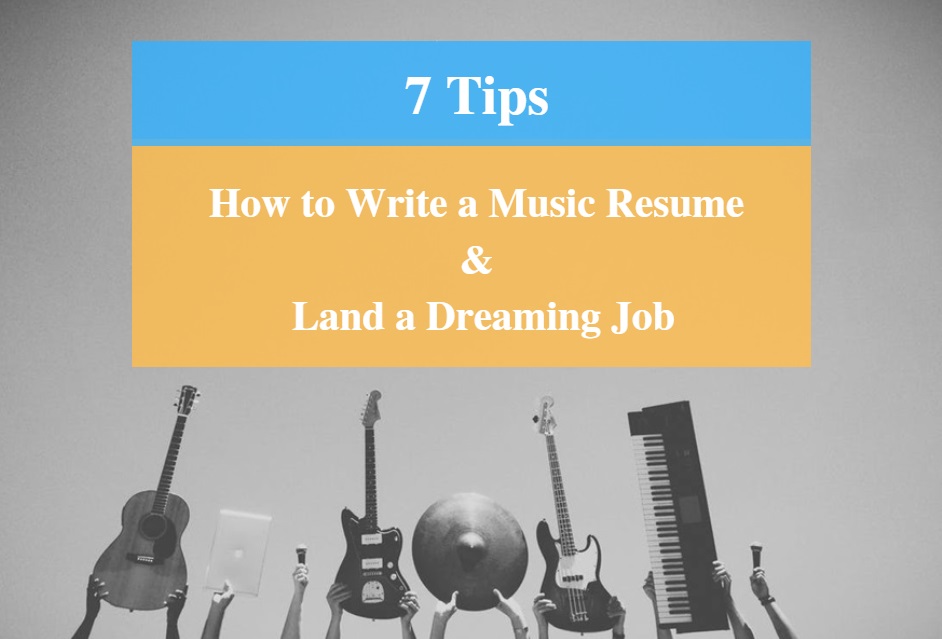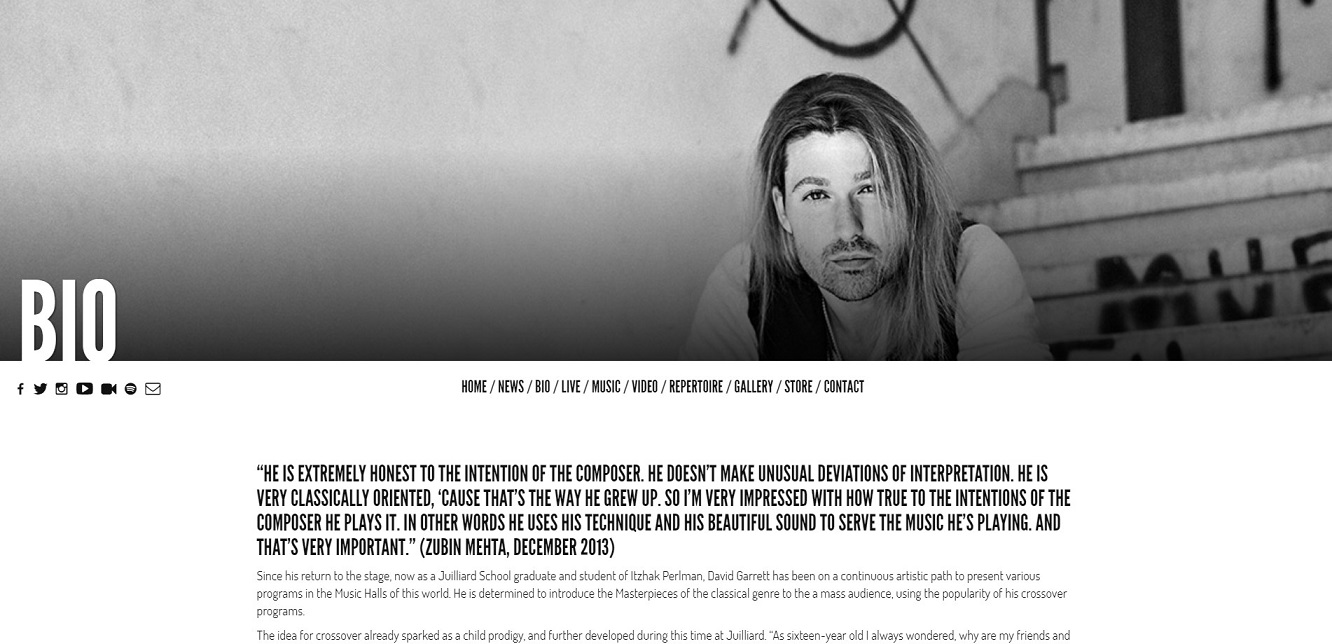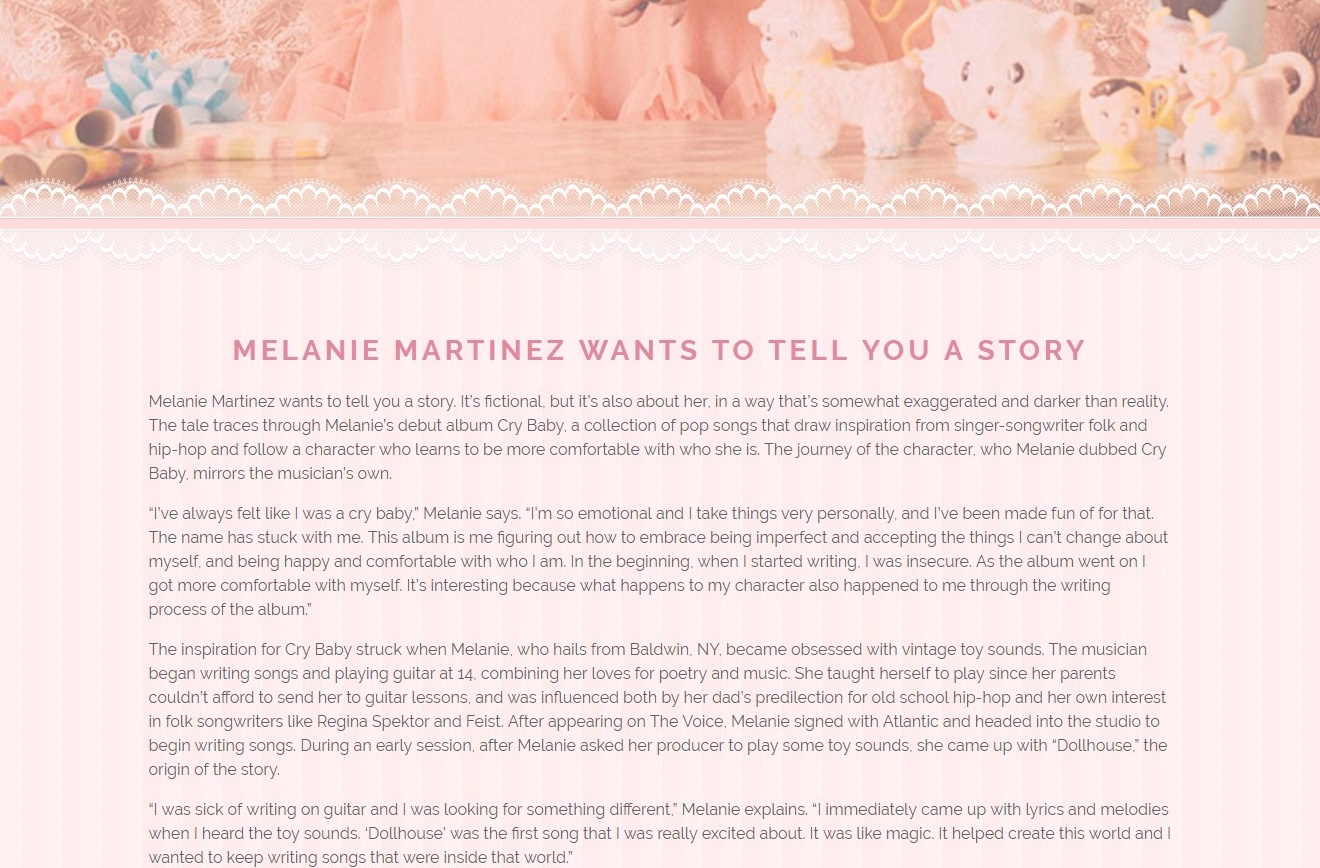
Experienced and budding musicians have a lot of job opportunities available to them. The challenge most musicians face is getting the attention of the right people in the music industry. Research has shown that employers take only about 5 seconds looking at a resume to decide whether it goes into the ‘rejection’ or ‘second look’ pile.
Therefore, if you want to be called back for an interview you must ensure your resume is not only impressive but highlights most of the things the recruiter wants to see. In this guide, we have provided a number of tips that can really help you write a great resume.
What to Include in a Resume
The first tip on how to make a musician’s resume that stands out is to know and include the most important things in your resume. Although there isn’t a specific way to write a musician’s resume, there are certain things that must be included in every resume. These include:
- Artist Bio: This is one of the most important parts of your resume. A music artist bio is the section of your resume where you provide information about yourself, your career ambitions, and your professional goals. This section is important because it is the section that captures the recruiter’s attention the most. You need to make it engaging, convincing, and most importantly unique.
- Work Experience: Recruiters are drawn to job applicants who have the required skills to do the job. Your work experience proves your ability to do a specified job. Therefore, you need to provide as much information about your responsibilities, duties, and achievement in previous posts in the work experience section. However, if you are applying for entry-level music industry jobs, you need to write a resume for college graduates with no experience. In this type of resume, your work experience should focus on things like school projects and music industry internships that have prepared you for the job.
- Educational Background: Your education is also important to the recruiter. Recruiters want to know whether or not you have been professionally trained for the position. Therefore, it is important to provide this information so that the recruiter can understand what you have majored in and how that might be beneficial to their company.
Other Useful Tips for Writing an Impressive Resume
- Resume format: It is another important thing you need to consider when writing your resume. There are two common formats most people use when writing their resumes; chronological resume and functional resume. A chronological format is the type of format where work experience, educational background, publications, and other achievements are listed in chronological order starting with the latest and ending with the earliest. This is the most popular format and it is mostly used by people who are applying for a job they are professionally trained for. A functional format, on the other hand, is not written in any particular order. Instead, the applicant simply lists the skills and experiences that qualify them for the job they are hoping to get with the resume. Most people who use functional formats are not professionally trained for the job they are applying for but they have the skills and experience to do the job. Choose a format that you believe would best showcase your skills and experiences.
- Creative design: You should also consider writing a creative resume if you want to stand out from the competition. Music is a type of art. Therefore, creativity will without a doubt make you stand out especially when everyone else is submitting the same type of resume that recruiters have seen over and over again. Have a look at some of these creative resume examples for some inspiration on how to make your resume creative and interesting.
- Recommendations: When writing a music industry resume, it is also important for you to choose your referees wisely. You should never list a friend, acquaintance, or family member as your referee. A resume is a professional document. This means you have to list people who you have worked with and can attest to your skillset and capability to do the job. If you are a fresh graduate with little or no experience, you need to list lecturers and professors as referees.
- Length: Last but not least, keep your resumes for musicians short. Try not to exceed 2 pages. This is because most recruiters do not spend more than 6 seconds on a resume. You need to have everything in 1 or 2 pages to ensure the recruiter goes through most of the important parts. Write a resume that will give the recruiter an easy time looking for the information they need. Never assume that they will try and find the important details in your resume because they will not. In addition to this, remember your resume is only a way for you to get an audition or interview, not a job. Therefore, never provide too many unnecessary details. Keep it short and straight to the point.
How to Write a Professional Bio
Writing a bio for work is arguably the most important thing you will do when writing your resume. This part of your resume gives an introduction to what you do, who you are, and what your interests are. What you decide to highlight will determine whether or not you get a callback.
Therefore, you need to be very careful when writing this section. One of the most important things you should focus on is providing the recruiter with a statement of why you do what you do. This is what will make you stand out from other applicants. If you are unsure of how to go about it, it might be a good idea to look at an artist’s bio example for inspiration. However, do not copy anything in the example because you need your resume to be as unique as possible.
First of all, grab your visitor’s attention and put a sentence or two about yourself and where are you from. The tone is very important – it should reflect your music style.
Secondly, the tour bio should be written in the second person. Besides, it makes it easier for media and bloggers to copy your information and post it if needed.
Thirdly, what is the purpose of your bio page? To tell people about your music, so give it to them. Tell about your achievements, your goals, what festivals you took part in, and so on. Don’t lie and keep close to the facts. All the background information should be short, engaging, and current.
Check out some of your favorite musicians’ websites for great bio examples.
David Garrett has a great bio page with lots of childhood photos. His story starts from the nowadays achievements and moves to where the very beginning of his career. Also, he includes a press quote at the top of the story.

Another great and sweet example is Melanie Martinez who tells us a fairy tale kind of bio. It is written tie to her branding style and shows her uniqueness.

Follow these tips and you’ll create an outstanding and effective musician resume and an impressive bio that will definitely grab the employer’s attention and make them call you.
